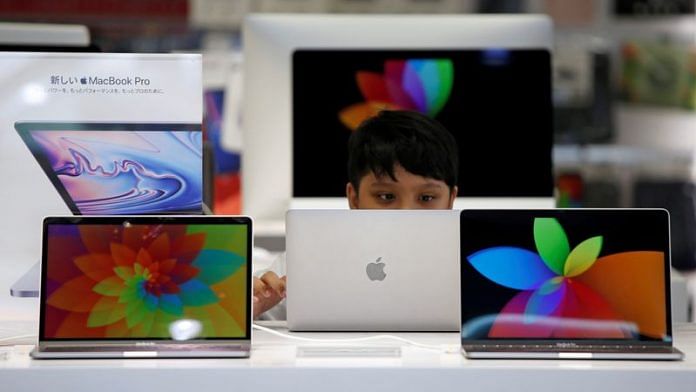A move seen by many as a government initiative to stimulate local manufacturing could also present obstacles for the average citizen. I am, of course, referring to the recent ruling by the Narendra Modi government, which now requires laptop, PC, and tablet manufacturers to obtain a licence for importing these devices for sale in India.
“Import of laptops, tablets, all-in-one personal computers, and ultra-small form factor computers and servers falling under HSN 8741 shall be ‘restricted’, and their import would be allowed against a valid licence for restricted imports,” stated the notice from the directorate general of foreign trade.
Only a limited number of products can be imported for testing purposes, and while there is technically no ban on individuals buying a device abroad and importing it to India, provided they pay the necessary duty, things are about to become more complicated not just for manufacturers but also for the average citizen.
Detrimental to market in the short term
While smartphones from most manufacturers are assembled in India, the situation is different for laptops, PCs, all-in-ones, and tablets. Lenovo, the largest player in the PC/laptop segment, which is also Chinese, does assemble its products in India, but companies like Apple, Samsung, Xiaomi, Realme, Asus, and Acer primarily import their products.
Furthermore, many manufacturers offer “build to order” products, which are customised as per the buyer’s preference using an online configurator — a service Apple provides both at its online and offline stores. I recently purchased a MacBook Pro using this configurator.
The government notification will, therefore, not only affect bulk orders for devices that companies like Apple import from China, but it may also eliminate these customised offerings due to the complexity of the licence.
But aren’t Apple products for the wealthy and privileged, you might ask? And what about the educational sector? For instance, Reliance recently launched the JioBook, which costs less than Rs 20,000 and is made in China. If Reliance needs to import, say, even half a million units of this device, it will now require a licence.
Similarly, brands like Xiaomi and Realme, which have only recently entered the laptop market, will now face difficulties. Xiaomi is already under intense scrutiny from the ED, and this will only add to its problems.
In simple terms, there will be a shortage of products in the market, exacerbating the supply chain issues caused by the Covid-19 pandemic and the semiconductor crisis. It is also likely to make some products more expensive.
The tablet market in India, which was recovering with new products from Xiaomi, Realme, and OnePlus, in addition to Apple’s consistent dominance with the iPad, will now face further challenges due to this notification.
This will undoubtedly stifle the sector’s growth in India once again.
Also read: iOS 17 TO watchOS 10, Apple’s subtle software upgrades will make a big impact
For individuals shopping abroad
Typically, when one travels, there is an allowance to carry one laptop. People who frequently travel abroad are often asked by friends and family to bring back Apple laptops from the US because they are cheaper and come with an international warranty, meaning they can be repaired in India despite being purchased in the US.
We can expect increased scrutiny on passengers who do this. With a lack of availability of products and added cost, this will likely lead to more people asking their friends and relatives to buy these notebooks from the US. That will almost certainly trigger more scrutiny at the same time.
We have already seen people being caught carrying iPhones from abroad — and while the government’s intention is not to target the average citizen, we all know how authorities in India often misuse such rulings.
Increased scrutiny on Chinese brands?
This is likely another method to put pressure on Chinese brands in India. Lenovo is the world’s leading manufacturer and, while it is Chinese, its consumer business is a legacy of the IBM ThinkPad business acquisition from the mid-2000s. All ThinkPad, IdeaPad, Yoga, and ThinkCentre products are made in India, so it is likely to escape scrutiny.
But what about brands like Xiaomi, Realme, and OnePlus? One might expect the government to favour companies like Apple and Samsung, which are already making significant investments in India.
Apple is gradually shifting its manufacturing to India, and Samsung has built the world’s largest smartphone manufacturing facility in Greater Noida. While the expectation is that Apple and Samsung will comply over time, it is likely that they will be given some leeway, while the government focuses its attention on Chinese brands.
Sahil Mohan Gupta is Editor, Technology at Acko Drive. He tweets @DigitallyBones1. Views are personal.
(Edited by Prashant)



